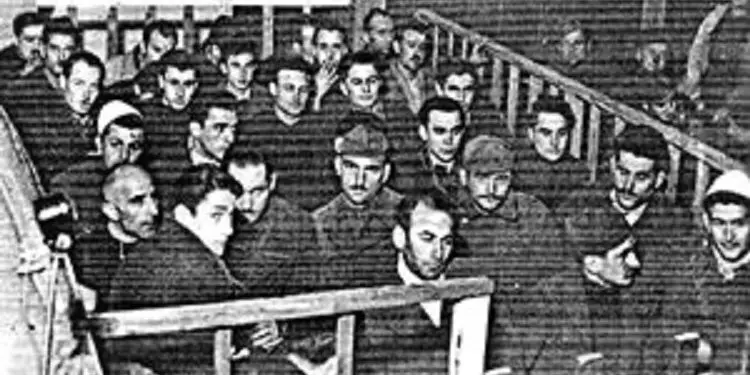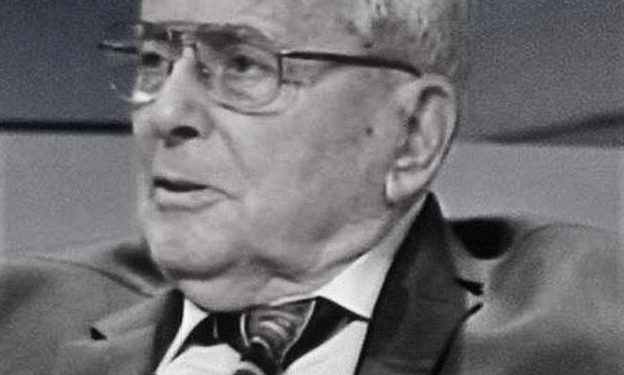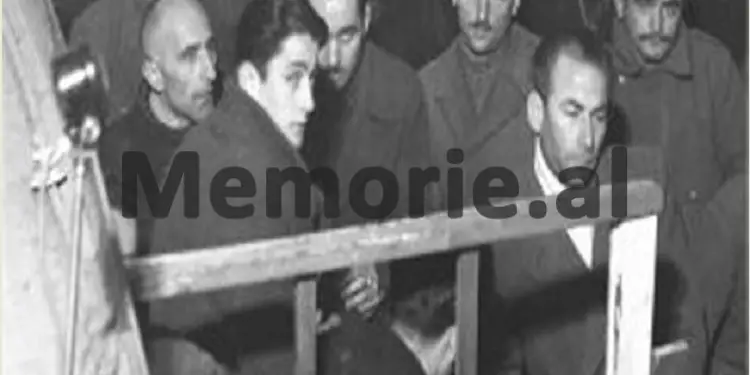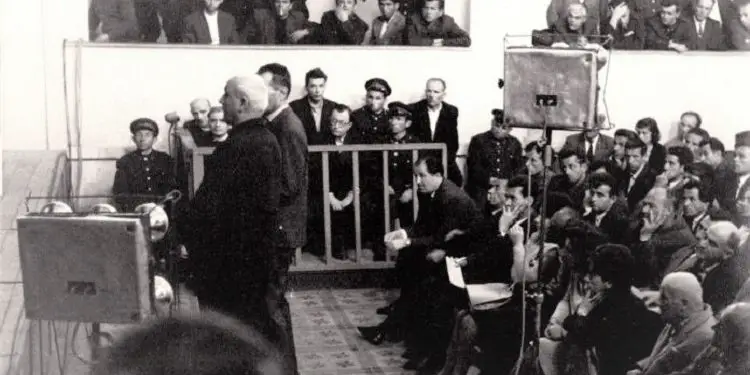From Agim Musta
Part twenty-four
Memorie.al / On the fourth anniversary of the passing away of the well-known historian, researcher, writer and publicist Agim Musta, (July 24, 2019), former political prisoner, his daughters Elizabeta and Suela, gave him the right to exclusivity for the publication, by the online media Memorie.al, of one of the author’s most prominent publications, such as the ‘Black Book of Albanian Communism’. This work contains numerous data, evidence, facts, statistics and arguments unknown to the general public, on communist crimes and terror in Albania, especially against intellectuals, in the period 1945-1991. The publication for the first time of parts of this book is also the realization of one of the bequests of the historian Agim Musta, who, from the beginning of 1991 until he passed away, for nearly three decades was engaged with all his powers, working to raise collective memory, through book publications and publications in the daily press. All that voluminous work of Mr. Agim Musta, concretized in several books, is a contribution of great value to the disclosure of the crimes of the communist regime of Enver Hoxha and his successor, Ramiz Alia. A good part of the publications of Mr. Agim Musta, is also translated into English. Thanking the two daughters of the late Musta, who chose Memorie.al, to commemorate their father, from today we are starting the publication, part by part, of the “Black Book of Albanian Communism”.
Continues from last issue
-Portraits of fellow sufferers-
(1945-1991)
Religious persecution
In 1967, communist Albania was declared the only atheist state in the world. Applying the orders of Leninism, that religion is opium for the people, the Albanian communist state, in 1967, decided to give the last blow to all the religious beliefs that had been able to survive until that time. It should be noted that in the first days of the establishment of the communist dictatorship in Albania, in December 1944, the persecution of clerics and state propaganda against every religious belief began. Administrative and economic coercive measures of all kinds were taken, up to the expulsion of foreign clerics who had served for years and who lived and worked in Albania. The Catholic clergy was the one that was hit more by the three religious faiths that existed in Albania and was placed in the center of the communist cyclone. Of the 260 Catholic clergy who were in Albania during the communist dictatorship, 240 of them were exiled, arrested, tortured, executed and suffered thousands of years in prison. Assemblies and religious schools were confiscated and turned into remand prisons, warehouses and sports facilities. Such persecution of the Catholic clergy had not happened even during the five-century Ottoman occupation. This kind of hatred towards Catholicism started in 1919, with the creation of the Comintern. The Vatican was viewed by world communism as an obstacle to the triumph of communism and as the agential center of world imperialism. On the other hand, some of the Catholic clergy such as: Father Anton Harapi, Dom Lazër Shantoja, etc., were national values and communism destroyed the values and not the ordinaries.
The Enverian dictatorship went so far as to order the demolition of the grave and throwing into the Buna River, the remains of the high Catholic clergy and the most prominent epic poet of the Albanian nation, Father Gjergj Fishta. The Sunni Muslim clergy, from its theological and cultural backwardness, did not have sufficient influence over its believers. With rare exceptions such as; Hafiz Ali Korça, Hafiz Ali Kraja, Hafiz Ibrahim Dalliu and others have been distinguished not only as clerics but also as patriots and as writers, translators and political activists. The Bektashian clergy has historically served as a nursery for patriotic troops. Precisely for this reason, the communists hit the Bektashi clerics, long before they took power. In October 1943, a communist gang attacked in the middle of the night the village of Turan, in the district of Korça, and barbarically massacred Baba Zylfo along with 3 other believers. Baba Zylfua was an outstanding patriot and participant in the Congress of Bitola in 1908, for the establishment of the Albanian alphabet. Cultured leaders of the Albanian Orthodox Church, who were well aware of the crimes of world communism, propagated against the communist movement. Precisely for this reason, in 1943, Monsignor Idhomen Kosturi was assassinated by communist terrorists and after the establishment of the dictatorship, the Archbishop of the Albanian Autocephalous Church, Visarion Xhuvani and Monsignor Irine Banushi, were imprisoned for life.
Here are some of the leading clerics of the three religious faiths who were executed, imprisoned and exiled during the communist dictatorship.
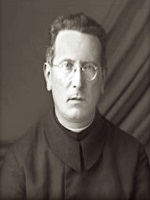 Father Gjon Fausti
Father Gjon Fausti
Age 46, born in Brescia, Italy. Graduated in theology and philosophy. Sentenced to death, shot in 1946.
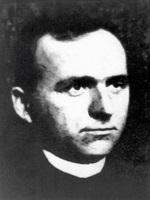 Father Daniel Dajani
Father Daniel Dajani
43 years old, from Blinishti i Zadrima. He graduated in Italy for literature and philosophy. He was sentenced to death by firing squad in 1946.
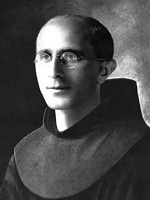 Father Gjon Shllaku
Father Gjon Shllaku
38 years old, from Shkodra. Graduated in literature and philosophy in the Netherlands. He was shot in 1946.
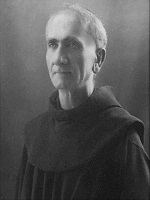 Father Anton Harapi
Father Anton Harapi
Born in Shirokë in 1888. He completed his higher studies in Vienna (Austria), poet, orator and publicist. Director of the Franciscan College in Shkodër. In September 1943, he was appointed a member of the Supreme Council. In February 1946, he was sentenced to death by firing squad.
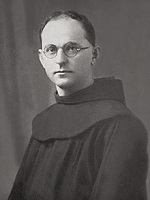 Father Ciprjan Nika
Father Ciprjan Nika
46 years old from Shkodra. Graduated in theology in Austria. He was shot in 1946. The last word was “Long live Christ the King, Long live Albania even without us”.
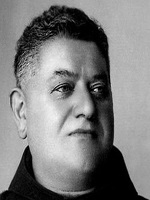 Father Mati Prendushi
Father Mati Prendushi
66 years old. Born in Shkodër. He completed his higher studies in Graz, Austria. He was sentenced to death by the Serbs in 1911, but he was spared life. Punished again by the communist regime by firing squad in 1946.
 Monsignor Frano Gjini
Monsignor Frano Gjini
Born in Shkodër in 1886. He completed his higher studies in Rome. He was arrested in 1945 with the motivation of being an agent of the Vatican. It is punishable by death. He was shot in 1946.
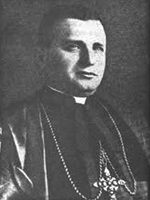 Monsignor Gjergj Volaj
Monsignor Gjergj Volaj
Born in Shirokë (Shkodër) 1905. He completed his higher studies in Italy. Arrested and tortured in the most inhuman way. Executed in 1947.
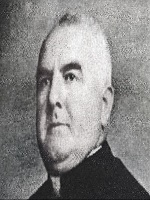 Mons. Nikola Deda
Mons. Nikola Deda
Born in Shkodër in 1892. He completed his higher studies in Italy and Austria. Arrested in 1946 and sentenced to death in 1948 for political crimes.
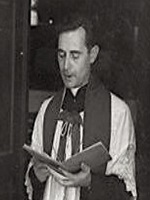 Dom Zef Bici
Dom Zef Bici
Born in Shkodra 1920. Studied at the Jesuit Seminary in Shkodra. He was arrested in 1965, but after a year he was released. Arrested again in 1967 and shot in May 1968.
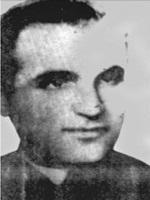 Dom Mark Dushi
Dom Mark Dushi
Born in Shkodra 1922. Studied at the Jesuit Seminary in Shkodra. Arrested in 1967. Sentenced in May 1968 by firing squad.
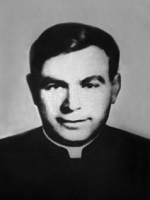 Dom Dede Malaj
Dom Dede Malaj
Born in the village of Mali i Jushit in 1918. He completed his higher education in Rome. In January 1947 he was called up as a soldier. Arrested on the charge of “Vatican spy”. He was taken out in front of the regiment and shot in front of the soldiers at the age of 29.
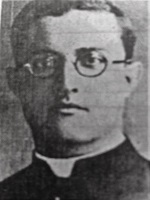 Dom Luigi Pici
Dom Luigi Pici
Born in Ulcinj in 1907. He completed his first studies in Saverena, while his higher education in Padua (Italy). On November 10, 1946, he was killed without trial by the communists.
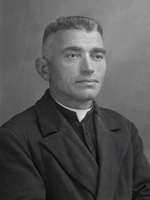 Dom Luigj Prendushi
Dom Luigj Prendushi
Born in Shkodër in 1896. He completed his first studies in Piedmont at the College with Sarvanos. Arrested in 1946 as a “Vatican spy”. He was shot in 1947.
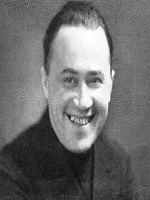 Dom Lazar Shantoja
Dom Lazar Shantoja
Born in Shkodër in 1892. He completed his higher education in Innsburg (Austria). Writer, translator and publicist. He was arrested in 1945. After being brutally tortured, he was shot at the age of 54.
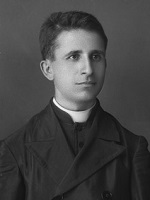 Dom Anton Zogaj
Dom Anton Zogaj
Born in Kthella of Mirdita in 1902. Headed the Papnuer (Shkodër) seminary for philosophy. I graduated from Trauning Austria. In December 1946, he was shot in Porto Romano.
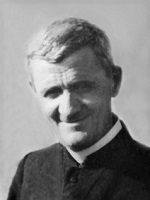 Dom Ndre Zadeja
Dom Ndre Zadeja
Born in Shkodër in 1891. He completed his higher studies in Innsburg (Austria), poet, translator and publicist. Arrested in 1945 and shot in March 1945.
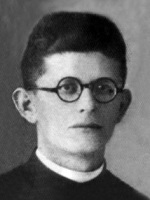 Seminarian Mark Cuni
Seminarian Mark Cuni
26 years old from Bushati. Completed high school in Shkodër. Continues at Papnuer Jesuit College. Determined anti-fascist anti-communist. Sentenced to death, shot in 1946.
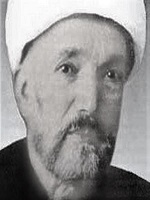 Hafiz Ali Korca
Hafiz Ali Korca
Born in Korça in 1890. Teacher at the Tirana Madrasa and a great patriot. Writer and translator. He was imprisoned in 1945 and sentenced to 6 years in prison as an opponent of communist ideas. He was released in 1950 and exiled for life.
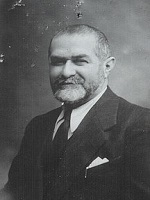 Sheh Ibrahim Karbunara
Sheh Ibrahim Karbunara
Born in Karbunare, Lushnje, 1892. MP in 1945. Imprisoned in 1947 and sentenced to death as a participant in the group of MPs.
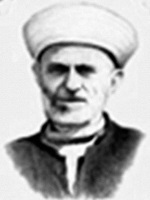 Hafiz Ismet Dibra
Hafiz Ismet Dibra
Born in Dibër in 1870. He studied theology in Istanbul. Director of the “Madrasa” school in Tirana. He was arrested in 1946 and sentenced to 10 years in prison for agitation and propaganda for the overthrow of the government. Released in 1951.
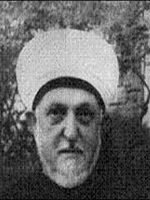 Hafiz Ali Kraja
Hafiz Ali Kraja
Born in Shkodër in 1886. Graduated in theology in Cairo. Member of the first Albanian Parliament. He was imprisoned in 1945 and sentenced to 20 years in prison as an enemy of the government. Released in 1964.
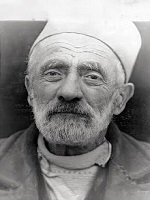 Hafiz Ibrahim Dalliu
Hafiz Ibrahim Dalliu
Born in Tirana in 1878. He finished his theology studies in Saudi Arabia. He was arrested in 1947 and sentenced to 8 years in prison for agitation and propaganda. He was released in 1951 and exiled for many years.
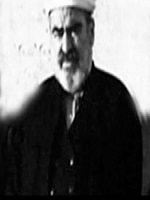 Hafiz Sherif Lëngu
Hafiz Sherif Lëngu
Born in Dibër 1877. Chairman of the Muslim Community 1943. Imprisoned in 1945 and sentenced to 10 years in prison as an anti-communist. Released in 1952.
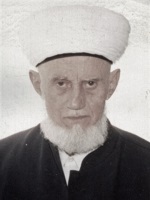 Hafiz Sabri Koçi
Hafiz Sabri Koçi
Born in Librazhd in 1921. Imprisoned in 1966 and sentenced to 20 years in prison as an enemy of the government. He was released in 1981. In 1992 he was appointed chairman of the Albanian Muslim Community.
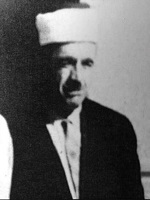 Hafiz Bakalli
Hafiz Bakalli
Born in Tirana 1892. Imprisoned in 1946 and sentenced to 10 years imprisonment for agitation and propaganda. Released in 1953.
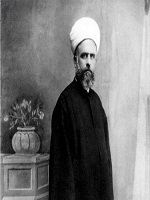 Hafiz Varoshi
Hafiz Varoshi
Born in Shkodër in 1892. Imprisoned in 1945 and sentenced to 5 years as an opponent of the communist regime. He dies in prison.
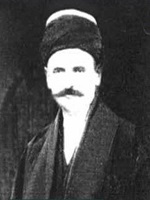 Sheh Ali Pazari
Sheh Ali Pazari
Born in Tirana 1893. Imprisoned in 1946 and sentenced to 15 years in prison as an enemy of the communist regime. Released in 1958.
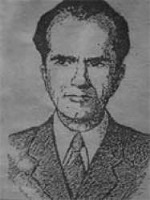 Vexhi Buharaja
Vexhi Buharaja
Born in 1903. Completed studies in theology. Master of 10 foreign languages and teacher in Madrasa. He was arrested in 1947 and sentenced to 8 years in prison for agitation and propaganda. Released in 1952.
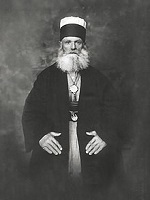 Sali Niazi Dede
Sali Niazi Dede
Born in Cologne in 1880. World Great Grandfather; 1916-1923. Founder of the World Council in Albania 1930-1941. He was killed by Albanian communist gangs on November 28, 1941.
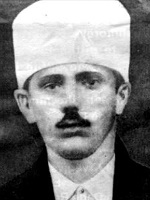 Dervish Ali Kocia
Dervish Ali Kocia
Born in Mallakastër in 1903. Teqeja where he served was the center of the nationalists. Precisely for this, the master criminal Mehmet Shehu shot him in August 1943 for his anti-communist views.
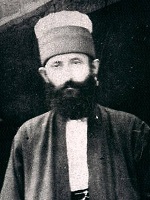 Baba Ali Tomorri
Baba Ali Tomorri
Born in Tepelena in 1892. Clergyman with wide culture. One of the protagonists of Bektashian Autocephaly. Organizer of several congresses performing the duties of secretary. Served devoutly since 1921. The atheist communists staged a trial and shot him in January 1948. He was a patriot and staunch anti-communist.
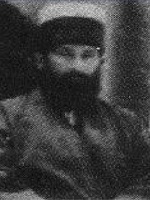 Baba Shefqet Kostani
Baba Shefqet Kostani
Born in Tepelena in 1889. Cleric of Teqe of Koshtan. For political reasons as an anti-communist, he was sentenced to be shot in January 1948.
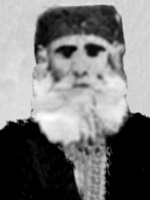 Father Qamil Glava
Father Qamil Glava
Born in Tepelena in 1882. Serves faithfully in several parishes. When the communists came to power, they arrested him for his nationalist views, accusing him of being an “enemy of the people”. In August 1945, he was sentenced by the Gjirokastra court by firing squad.
 Father Zylfo Turani
Father Zylfo Turani
Born in Devoll 1883. Participant of the Congress of Manastir in 1908. In October 1943, communist terrorists enter the town of Turan (Korea). They kill Baba Zylfon and three believers for their nationalist views. The Teqja of Turan was bled in the most barbaric way.
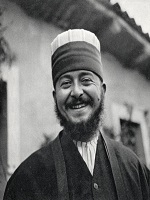 Father Myrteza Kruja
Father Myrteza Kruja
Born in Krujë in 1897. For 23 years, he served in the “Shemimise” farm in Fushë-Krujë. Clergyman of great reputation among the people. He was arrested for his anti-communist views in 1947. He was tortured in the cells of the Tirana State Security, where he died from torture.
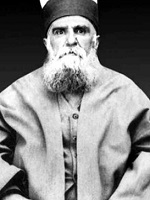 Dede Kamber Prishta
Dede Kamber Prishta
Born in Pagri (Përmet) in 1885. Third Grandfather of the Holy See 1943-1944, for anti-communist political motives, arrested in December 1944 and sentenced to 15 years in prison. As a result of physical and spiritual suffering, in 1951, he died in the prison infirmary (hospital no. 1 Tirana)
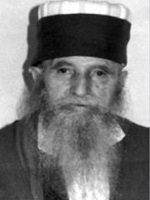 Baba Bajram Mahmutaj
Baba Bajram Mahmutaj
Born in Levan, Tepelenè 1913. Arrested in 1946 and sentenced to 20 years in prison. Accusation of “enemy of the government and the people”. He was one of the most vocal clerics as a religious and patriot. His house was the center of nationalism. After 12 years of imprisonment, he was released and exiled until 1991.
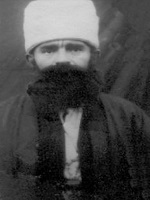 Father Islam Leskovik
Father Islam Leskovik
Born in Leskovik 1892. Arrested in 1946 as an anti-communist. Released in 1948. Arrested again in 1950 and sentenced to 12 years in prison. He enjoyed the love of believers for his religious and patriotic attitude. He died in prison in 1956.
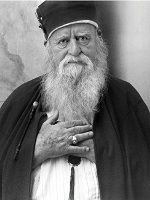 Haxhi Dede Reshat Bardhi
Haxhi Dede Reshat Bardhi
Born in Kukës in 1935. Served as a dervish in the Holy See since the age of 17. In 1958 he was interned together with Dede Ahmet. Faces the pressures of the atheist State Security. In July 1993, he was appointed Grandfather to the World Grandfather in Tirana.
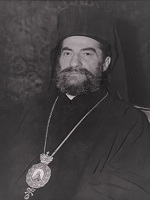 Monsignor Kristofor Kisi
Monsignor Kristofor Kisi
Born in Berat in 1881. Graduated in theology. In 1937. Appointed Archbishop until 1948. His death remained a mystery. He was found poisoned.
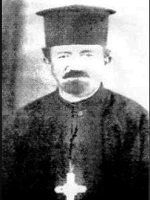 Father Gjergj Suli
Father Gjergj Suli
Born in Lekël of Tepelena in 1893. He completed his secondary education in Ioannina. Immigrated to USA, Boston, 12 years. Father Gjergji was a prominent activist of the “Vatra” society. Master of several languages. In 1934 he returned to Albania. He served as a clergyman in several villages in the South until the end of his life. Arrested in 1946 as a collaborator of the Anglo-Americans. He was shot in January 1947.
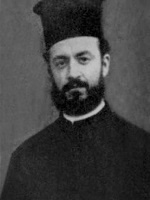 Father Sifi Papamihali
Father Sifi Papamihali
Born in Permet in 1901. Graduated in theology in Rome, Italy. He was arrested in 1946 and sentenced to 10 years in prison. He was buried alive in Maliqi Swamp in 1948.
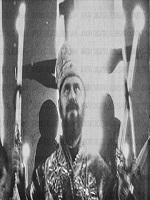 Monsignor Visarion Xhuvani
Monsignor Visarion Xhuvani
Born in Elbasan in 1887. Completed higher studies in theology. In 1920, the Lushnja Congress elected him a member of the Supreme Council. In 1922, he became a deputy. In 1925 he was appointed Archbishop of the Autocephalous Orthodox Church. He was arrested in 1948 and sentenced to 20 years in prison. He was released in 1963. He died in the Monastery of Saint John of Elbasan.
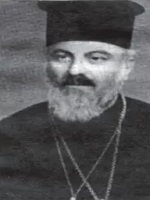 Monsignor Irine Banushi
Monsignor Irine Banushi
Born in Shkodër in 1906. He completed his higher theological studies in Belgrade. Imprisoned twice. From 1945 to 1948 and from 1956 to 1960. He was then exiled until the end of his life.
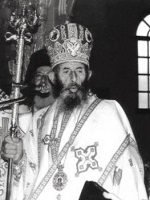 Bishop Kozma Qirjo
Bishop Kozma Qirjo
Born in Vlora in 1922. He was ordained a priest by Visarion Xhuvani. He was interned several times but courageously continued his religious sermons until the end of his life. The people of Vlora remember him with respect.
The tragic balance of religious persecution in Albania during the Communist Dictatorship was: 154 clerics died from torture, in prisons and shot. 178 imprisoned clerics, who served approximately 2,000 years of imprisonment. 41 exiled clergy.
Cult objects such as: Churches, mosques, mosques, flattened tombs 340
Seizures of the assets of religious cults, movable and immovable, with a monetary value converted to today’s US dollars, of $85,000,000.
V.O! A year before religious belief was eliminated, in September 1966, in Albania, the Ministry of Justice was abolished, which, according to Prime Minister Mehmet Shehu, was unnecessary, since justice had become a matter for all the people! President of the Supreme Court; Aranit Cela ordered the judges: “Put the codes in the official! The works of Enver Hoxha, on the table!”
Albania in 1967 was the only atheist country in the world without a Minister of Justice. /Memorie.al
The next issue follows




